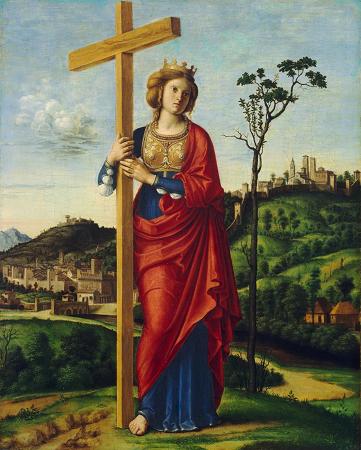Saint Michael. Michael is an archangel in Judaism, Christianity, and Islam. In Roman Catholic, Eastern Orthodox, Anglican, and Lutheran systems of faith, he is called Saint Michael the Archangel and Saint Michael. In the Oriental Orthodox and Eastern Orthodox religions, he is called Saint Michael the Taxiarch. In other Protestant churches, he is simply called Archangel Michael. Michael is mentioned three times in the Book of Daniel. The idea that Michael was the advocate of the Jews became so prevalent that, in spite of the rabbinical prohibition against appealing to angels as intermediaries between God and his people, Michael came to occupy a certain place in the Jewish liturgy. In the New Testament Michael leads God's armies against Satan's forces in the Book of Revelation, where during the war in heaven he defeats Satan. In the Epistle of Jude Michael is specifically referred to as the archangel Michael. Catholic sanctuaries to Michael appeared in the 4th century, when he was first seen as a healing angel, and then over time as a protector and the leader of the army of God against the forces of evil. Michael is mentioned three times in the Hebrew Bible, all in the Book of Daniel. The prophet Daniel experiences a vision after having undergone a period of fasting. Daniel 10:13-21 describes Daniel's vision of an angel who identifies Michael as the protector of Israel. At Daniel 12:1, Daniel is informed that Michael will arise during the time of the end. The Book of Revelation describes a war in heaven in which Michael, being stronger, defeats Satan. After the conflict, Satan is thrown to earth along with the fallen angels, where he still tries to lead the whole world astray. In the Epistle of Jude 1:9, Michael is referred to as an archangel when he again confronts Satan. A reference to an archangel also appears in the First Epistle to the Thessalonians 4:16. This archangel who heralds the second coming of Christ is not named, but is often associated with Michael. Michael, is one of the two archangels mentioned in the Quran, alongside Jibrail, while in non-Quranic sources, such as Sahih Muslim, Israfil is yet another Islamic 'archangel'. In the Quran, Michael is mentioned once only, in Sura 2:98: Whoever is an enemy to God, and His angels and His messengers, and Jibrail and Mikhail! Then, God is an enemy to the disbelievers. Some Muslims believe that the reference in Sura 11:69 is Michael, one of the three angels who visited Abraham. According to rabbinic Jewish tradition, Michael acted as the advocate of Israel, and sometimes had to fight with the princes of the other nations and particularly with the angel Samael, Israel's accuser. Michael's enmity with Samael dates from the time when the latter was thrown down from heaven. Samael took hold of the wings of Michael, whom he wished to bring down with him in his fall; but Michael was saved by God. Michael said May The Lord rebuke you to Satan for attempting to claim the body of Moses. The idea that Michael was the advocate of the Jews became so prevalent that in spite of the rabbinical prohibition against appealing to angels as intermediaries between God and his people, Michael came to occupy a certain place in the Jewish liturgy: When a man is in need he must pray directly to God, and neither to Michael nor to Gabriel. There were two prayers written beseeching him as the prince of mercy to intercede in favor of Israel: one composed by Eliezer ha-Kalir, and the other by Judah ben Samuel he-Hasid. But appeal to Michael seems to have been more common in ancient times. Thus Jeremiah is said to have addressed a prayer to him. The rabbis declare that Michael entered upon his role of defender at the time of the biblical patriarchs. Thus, according to Rabbi Eliezer ben Jacob, it was Michael who rescued Abraham from the furnace into which he had been thrown by Nimrod. It was Michael, the one that had escaped, who told Abraham that Lot had been taken captive, and who protected Sarah from being defiled by Abimelech. He announced to Sarah that she would bear a son and he rescued Lot at the destruction of Sodom. It is said that Michael prevented Isaac from being sacrificed by his father by substituting a ram in his place, and saved Jacob, while yet in his mother's womb, from being killed by Samael. Later Michael prevented Laban from harming Jacob. It was Michael who wrestled with Jacob and who afterwards blessed him.
more...













